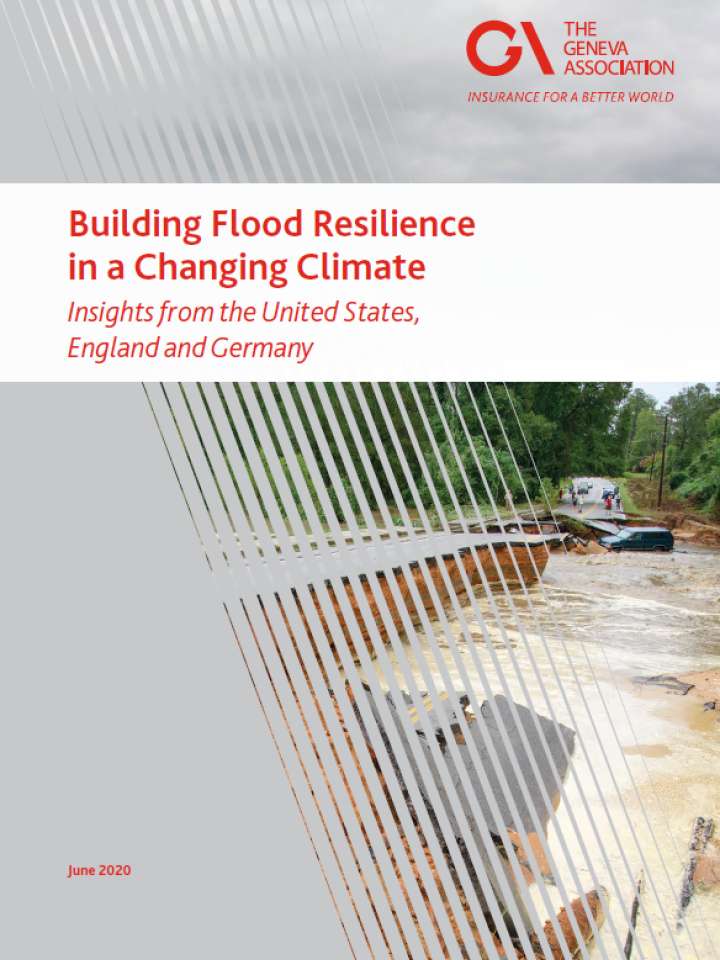Building flood resilience in a changing climate: Insights from the United States, England and Germany
This study is focused on building resilience to floods in a changing climate. It points to the need for a paradigm shift from reacting to crises towards a risk-based, anticipatory, holistic and all-of-society approach to managing the potential impacts of catastrophes. As part of its commitment to strengthening socio-economic resilience to extreme events and climate change, The Geneva Association has undertaken this study to take a deeper look at the evolution of flood risk management (FRM), particularly in light of the changing risk landscape. Specifically:
- This study offers a comprehensive review of FRM in three high-income countries with mature insurance markets: the U.S., England (a constituent country of the U.K., as defined by the Commonwealth) and Germany;
- Special attention is given to mapping the evolution of governance, institutional frameworks and the interplay of different components of FRM, including risk assessment, risk communication and awareness, risk reduction, risk prevention, risk financing, risk transfer (e.g. insurance and alternative risk transfer) and reconstruction measures;
- Trends and patterns are explored and key findings and recommendations for stakeholders aiming to improve FRM systems in any country are provided;
- The study did not set out to draw comparisons among the three countries, or to identify and promote best practices. In fact, a best practice in one country may not be so in another, as it cannot be isolated from the governance, institutional and cultural environments in which it was originally developed.
The recommendations of this publication are:
- Governments should develop a clear national strategy for FRM, with an anticipatory, cohesive and systems-based approach to building flood resilience.
- The insurance industry should further step up their proactive engagement with governments and their customers, as risk advisers, risk management experts, risk underwriters and investors, to support the implementation of FRM systems to strengthen resilience to floods.
- Businesses and households should proactively seek flood-risk information; understand and take responsibility for managing their flood risk, and make risk-informed decisions.
- International organisations, academic institutions, professional and executive education programmes could utilise this study in their awareness-raising campaigns and educational programmes targeted at government officials, policymakers, businesses and the general public, promoting the need for a risk-based, anticipatory, cohesive and systems-based approach, which takes climate change into consideration for building flood resilience.
- Government officials, the insurance industry and other stakeholders responsible for FRM in the U.S., England and Germany should come together in their respective countries, review and discuss the gaps, challenges and weaknesses identified in our review and find effective ways to work together to enhance their FRM system towards a more cohesive, systems-based and forward-looking approach.
Explore further
